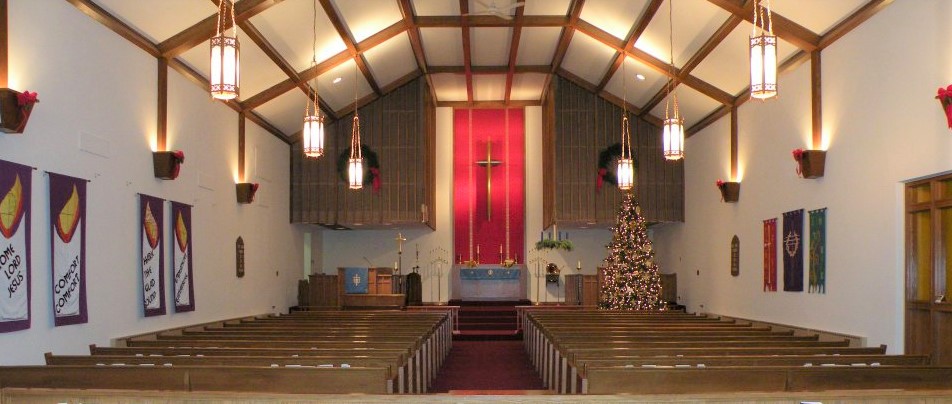Christ the King Sermon 11 22 20
The new season of The Crown, the Netflix series about Queen Elizabeth II, was released last week, so I went back to the beginning and have been re-watching all the episodes from the earlier seasons to refresh my memory of what has happened so far. I imagine it is much different watching the show if you’re British, but as an American, part of what I find interesting and educational is the history, tradition, pageantry, and all the rules that pertain to how the monarchy works and what is considered appropriate interaction between members of the royal family and the rest of society. There are protocols for titles and gestures and when one is allowed to speak and so forth. It’s quite literally a foreign concept to those of us who have only ever experienced the leadership of elected officials, which makes us the odd ones when you think of nations throughout most of history being so often led by kings, queens, emperors, or whatever a culture called their equivalent figurehead.
Ancient Israel was no exception; after God freed the people from slavery in Egypt for life in the Promised Land, God established the Law as it was recorded in Exodus and Leviticus for a self-governing society. God alone was to be King of Israel, a distinctive feature of the new nation that was to act as an example for all the world. But before long, Israel decided it didn’t want to set an example for its neighbors, it wanted to be the same as its neighbors. The people demanded a king for the express purpose of being like everybody else—even though everybody else was subject to the problems God was trying to prevent. God warned them that kings would exploit the people and be corrupted by their power, but the people didn’t listen. So God granted them kings, and, as God predicted, the kings were flawed, sometimes corrupt, often unfaithful, human leaders who governed the people not according to God’s vision but in the same greedy and unjust ways that Pharaoh and all the other neighboring kings ruled their people. By Jesus’ day, Israel was subject both to their local rulers—all the Kings Herod that we read about in the gospels—and the Roman rulers—Caesar and the intermediary governors Caesar put in charge. Still, the persistent hope of Jesus’ contemporaries for a messiah who would be a successful military and political ruler—basically a powerful earthly king—shows that they had not yet learned that the kingdom of God was not just a better version of the kingdoms of men. It was, in fact, the very opposite of earthy kingdoms.
In Matthew’s gospel, Jesus’ description of judgement does envision a glorious king seated on a throne. But the distinction that the ruler finds between those who have been faithful subjects and those who have not is not how they have treated their powerful and glorious ruler—it’s how they have treated the least among them. All the subjects—sheep and goats—presumably understand that they owe honor, deference, and service to the king—they would know all the rules they are supposed to follow when they are in the presence of the one wearing the crown. But unlike earthly kings, Jesus isn’t interested in accepting all that honor and glory for himself; he wants to know what service has been done for the poor and hungry, the sick and imprisoned, the neglected stranger. Most of us will never meet the Queen—or the President for that matter. But can you imagine how different the world would be if we all showed the same kind of respect that’s shown to royalty to every client at the food pantry, every homeless family displaced by a natural or personal disaster, every teenager incarcerated as an adult because of mandatory sentencing, every refugee seeking welcome in a safer place, every medically fragile person who needs other people to wear a mask?
Jesus did envision what that kingdom would be like, and that’s the work to which we are called as Jesus’ disciples—not so much making this a world where we get every person to call Jesus king, but making this a world where we value every person as if they were King Jesus himself. When we sing “Crown Him With Many Crowns” which is a great hymn that evokes the kind of pageantry we usually associate with earthly rulers, it can be tempting to think the point of Christ the King Sunday is to look forward to seeing Jesus honored and glorified and sitting on a throne of riches and power exceeding any king or queen we’ve ever known. But the kingdom of God is not where we make Jesus into the richest and most powerful version of us. The kingdom of God is where Jesus makes us more like him—the humble, faithful, merciful, patient, loving, forgiving servant of all. The way we bow before Jesus is to serve those whom God so loves, even though this world does not. Let’s go do the work of the kingdom.

